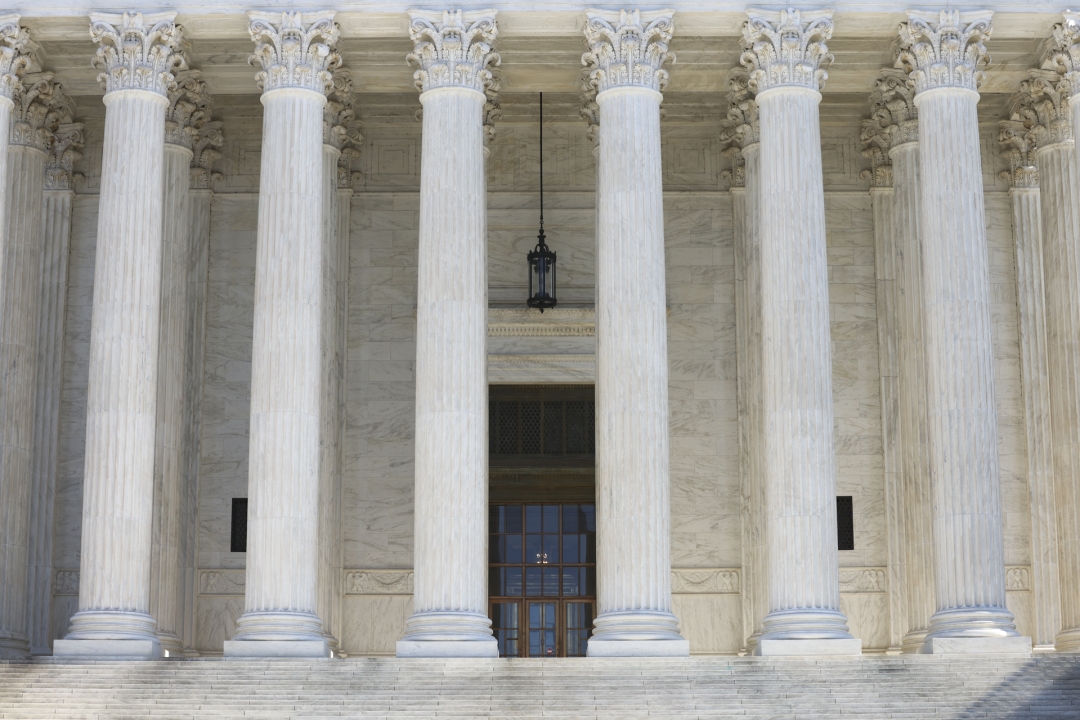WASHINGTON – Supreme Court Justices heard oral arguments on Tuesday about whether U.S. gun manufacturers can be held accountable for the production and sale of firearms and the proximate harm their products cause in Mexico by contributing to drug cartel violence.
In 2021, the Mexican government filed a lawsuit against U.S. gun manufacturers, claiming they had aided and abetted illegal gun sales to traffickers for use by Mexican cartels. The suit alleged firearms companies engaged in business practices for decades that created a supply of weapons smuggled across the U.S.-Mexico border.
The Mexican government is asking for $10 billion in damages in addition to “injunctive relief,” which would impose new gun control measures in the U.S.
A federal district court in Massachusetts dismissed the case under Protection of Lawful Commerce in Arms Act (PLCAA), which bars lawsuits against firearms companies based on criminals misusing their products.
The U.S. Court of Appeals First Circuit reversed the decision, ruling that PLCAA does not apply in this case since Mexico has claimed gun manufacturers’ business practices have aided and abetted firearms trafficking to cartels, which has ultimately harmed the Mexican government.
This is the first time the Supreme Court has considered the legality of PLCAA since it was enacted with bipartisan support in 2005.
Raymond M. Sarola, of counsel at Cohen Milstein, filed an amicus brief in support of Mexico on behalf of law enforcement officers across the country.
If the court rules in favor of the Mexican government, Sarola said, “Hopefully litigation like this would cause an industry to take affirmative steps when it is aware that the conduct that it is engaged in is having these terrible consequences.”
During oral arguments, justices appeared skeptical of both sides.
Justice Amy Coney Barrett pressed Noel Francisco, the lawyer arguing on behalf of the gun companies, on how the issue of proximate cause was framed within the context of the case.
“You haven’t sued any of the retailers that were the most proximate cause of the harm. And you haven’t identified them that I can tell in the complaint.”
In an amicus brief supporting the petitioners Smith and Wesson Brands, David Tryon, the Director of Litigation at The Buckeye Institute, argued that a ruling in favor of Mexico could potentially cripple American gun manufacturers, which he believes encroaches on the Second Amendment.
“This is a Second Amendment case because they are very clear, because that law was passed to protect the Second Amendment, and this is designed to invade that law and to attack the firearms industry and basically bankrupt the firearms industry, because they’re asking for billions and billions of dollars in damages.”
When hearing arguments in Mexico’s favor, Justice Ketanji Brown Jackson expressed her concern about PLCAA and protecting Congress’s prerogative to regulate the firearms industry.
“All of the things that you ask for in this lawsuit would amount to different kinds of regulatory constraints that I’m thinking Congress didn’t want the courts to be the ones to impose.”
Timothy Lytton, a Regents’ Professor and Professor of Law at Georgia State University who filed an amicus brief on behalf of Professors of Tort Law, Statutory Interpretation, and Firearms Regulation in support of neither party, emphasized the impact that a ruling in favor of Smith and Wesson could have on the legitimacy of PLCAA.
“If the court holds in favor of Smith and Wesson’s argument with regard to proximate cause, it will eliminate any possibility of liability for injury arising out of criminal misuse of a weapon. That would be a radical expansion of what Congress intended when it passed the federal immunity shield.”
The court is expected to reach its decision in summer 2025.


